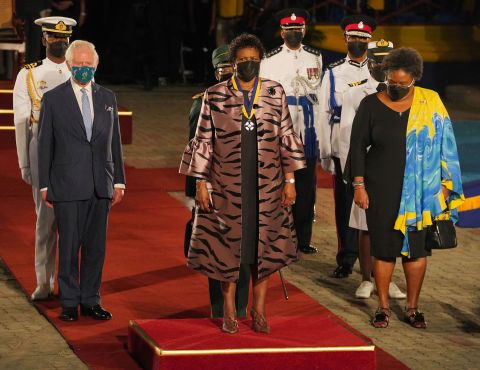
After almost four centuries under the British Crown, the island-state of Barbados has formally become a republic. The country had announced its interest to leave the monarchy in September of this year, and on this Monday they officially swore in Governor-General Sandra Mason as the new President of the island.
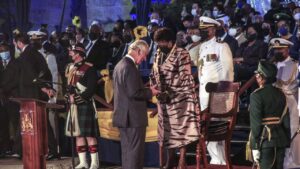
Barbadians across the world celebrated the full independence of the country even though some questioned the timing of the decision, as the republic had been a goal ever since Barbados became independent from the U.K in 1966. In 2005, the country dropped the Queen’s Privy Council and assigned the Caribbean Court of Justice as its final court of appeal in one of its most important moves towards full independence in the past decades. The country also introduced a referendum on becoming a republic in 2008, but it was pushed back indefinitely until last year when the island re-introduced plans to end its constitutional monarchy and remove a statue of a British Vice-Admiral from its National Heroes Square.
One of the main storylines with this decision is about whether it did enough to address the more than 200 years of slavery in Barbados under past British rule. At Monday’s ceremony, Prince Charles was there to deliver a speech acknowledging the horrors of slavery on the island that were committed by the British.
“From the darkest days of our past and the appalling atrocities of slavery which forever stains our history, people of this island forged their path with extraordinary fortitude. Emancipation, self-government, and independence were your waypoints”
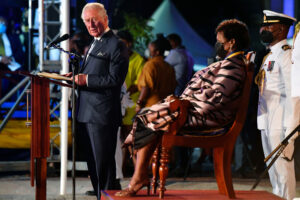
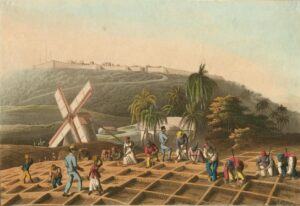
Barbados’ history with slavery started in the 1600s, when Dutch merchants brought in a system based after Portugal’s process for making sugar cane with slaves in Brazil. It quickly transformed the country’s tobacco and cotton plantations into large monopoly monocultures of sugar cane called latifundium. After that, Barbados became largely a slave state, as in 1636, it was defined that all Africans brought to Barbados were to arrive as lifelong slaves, and in 1661 the country passed slave laws that helped instill this culture, and transform slaves into real estate.
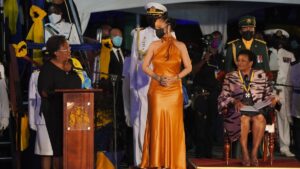
Barbados finally abolished slavery in 1834, although it still took another four years until 1838 for slaves to be freed after the “transitional period” established by the state. For these reasons, critics were skeptical of Prince Charles giving a speech representing the U.K, and the fact that the new president was previously appointed by Queen Elizabeth II as a Governor-General. While Monday’s decision went far toward breaking ties with the past, it also kept Barbados as part of the British Commonwealth. Hip-hop superstar Rihanna, who was born in Barbados and grew up in Bridgetown, made perhaps more headlines than Barbados’ republic itself this Monday. She was named a national hero during the country’s proclamation of the republic, and hours after the ceremony, rumours started to surface that she’s pregnant with her first child.
“May you continue to shine like a diamond, and bring honor to your nation” Said the new president Sandra Mason, 72, as she addressed Rihanna in her speech.

Be the first to comment